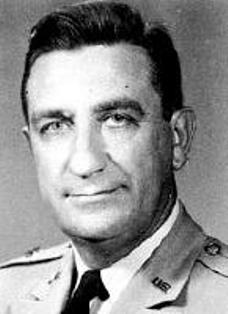Major General Robert F. Seedlock


 Commander, U.S. Army Engineers, Burma Road, 1944-1945
Commander, U.S. Army Engineers, Burma Road, 1944-1945
Robert Francis Seedlock was born Feb. 6, 1913, in Newark, Ohio.
After two years at the Case School of Applied Science (now Case Western Reserve University),
he won an appointment to the U.S. Military Academy, from which he graduated in 1937.
He received a master's degree in civil engineering from the Massachusetts Institute of Technology
in 1940.
During World War II in the CBI Theater, Seedlock commanded the Burma Road Engineers and oversaw a force of 1,000 U.S. Army Engineers,
20,000 Chinese and other laborers, as they rebuilt almost 600 miles of the Burma Road in China,
often in extreme weather and under threat of Japanese attack.
The job included rebuilding highway and constructing new roads and bridges.
After the war, Seedlock remained in China, where he was part of General George C. Marshall's failed
mission to mediate a settlement to the civil war that led to the communist takeover of the country.
In the 1950s and 1960s he held various posts with the Army Corps of Engineers and the regular Army.
He was promoted to Major General, his highest rank, in 1962.
The following year, he helped negotiate the release of two U.S. helicopter pilots captured in
North Korea.
Near the end of his Army career, Seedlock took command of Fort Belvoir in northern Virginia in 1966
and led an effort to desegregate off-base housing.
He retired from the Army in 1968 and went on to manage major engineering projects in the private sector,
including construction of rapid-transit systems in Pittsburgh and Atlanta and the Jiddah airport in
Saudi Arabia.
He died May 5, 2004 in Arlington, Virginia.
PAY RESPECTS
CLOSE THIS WINDOW
 Commander, U.S. Army Engineers, Burma Road, 1944-1945
Commander, U.S. Army Engineers, Burma Road, 1944-1945